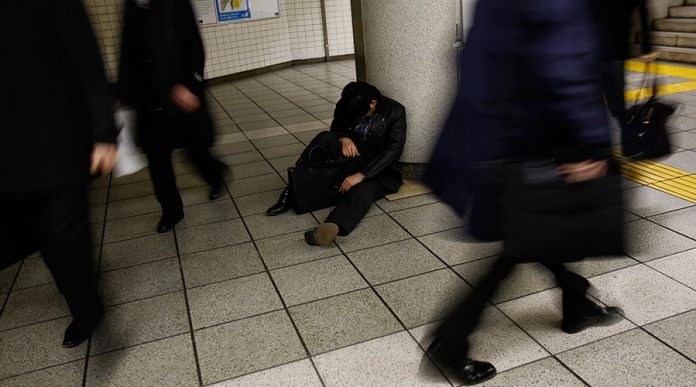A new law has been put into effect in Japan that will put a cap on overtime hours. This move is an effort to combat the nation’s notorious culture of working excessive overtime.
According to Kyodo news agency, the new law limits legal overtime work to 45 hours a month and 360 hours a year, with potential fines of £2,068 (300,000 yen) for companies that violate the new rules.
The labour reform law will initially target only major companies for now. However, companies are permitted to extend overtime hours to up to 100 hours a month and 720 hours a year during particularly busy periods for a maximum of six months a year.
Overtime, the new law will reportedly be expanded to cover legal overtime caps for SMEs in Japan from April 2020.
Critics remain sceptical as to whether the new legal cap will manage to genuinely transform the deeply rooted culture of overworking in Japanese companies. The pressures of Japanese corporate life are well documented, with many companies governed by hierarchical structures, strict protocol and widespread pressure for staff to work longer hours than their superiors.
The severity of Japan’s overworking culture cannot be overlooked. Over the years, it has garnered an increasingly notorious reputation due to a growing number of deaths from overworking. The issue has reached such extremes that there is a specific word to describe death by overworking, known as “karoshi”.
According to government statistics, as many as 190 people have reportedly died from overworking during the 2017 financial year. This includes suicide caused by work stress and pressure. Around 90 per cent of deaths from overwork involved victims who had worked at least 80 hours of overtime during the previous month, with as many as half clocking up 100-plus hours.
The culture of overworking stems from Japan’s post-war era. In an effort to kickstart the nation’s battered economy, then Prime Minister Shigeru Yoshida enlisted major corporations to offer their employees lifelong job security, asking for workers to only repay them in loyalty.
Only in recent years have the Japanese government taken noticeable steps to discourage long work hours. One particularly high-profile case was 24-year-old Matsuri Takahashi who suffered a mental breakdown and committed suicide due to overworking at Dentsu, a major advertising firm. Ms Takahashi reportedly worked more than 105 extra hours in a single month while only getting approximately 10 hours of sleep a week.
Japan’s culture of overworking is also related to the nation’s shrinking population. Many young employees are finding it too hard and stressful to maintain a relationship in the extreme work environment. The current birth-rate in Japan stands at 1.4 as of 2018.
The new overtime cap is one of three key pillars of labour reform masterminded by Shinzo Abe, the prime minister, who is grappling with a rapidly aging, shrinking workforce in addition to a culture of overworking.
The introduction of the new labour law coincides with a major shift in Japan’s immigration policy, with a new visa system also launched on 1 April, opening the doors to more foreign workers.























